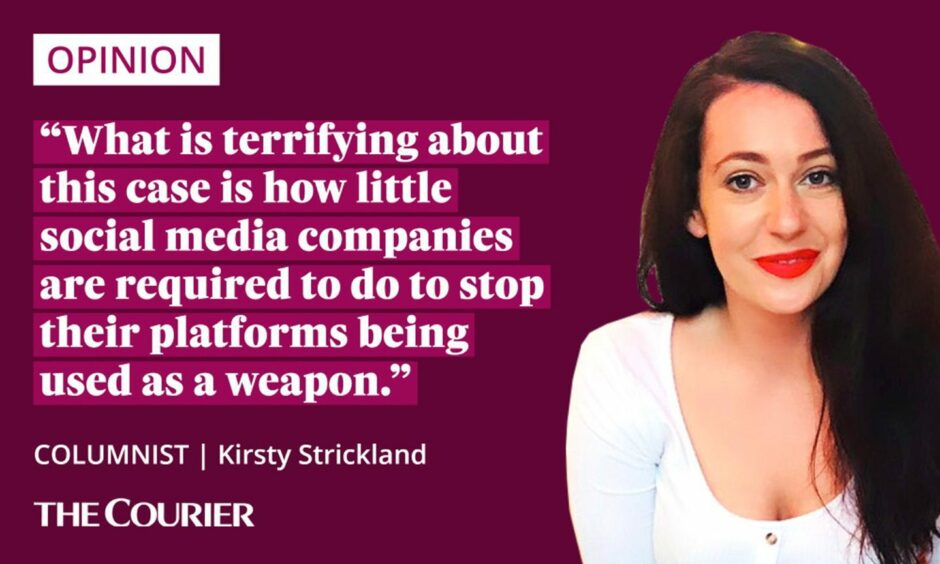Last week, a former BBC radio presenter was jailed for five and a half years after being found guilty of stalking.
Alex Belfield stalked and harassed four people online, targeting them with emails, social media messages and abusive YouTube videos.
He was originally charged with stalking eight different people, some of whom he knew from his time working for the BBC.
One of Belfield’s victims was BBC Radio Northampton presenter Bernard Spedding who he harassed for nine years.
In court, the judge told Belfield that at one point Mr Spedding was ‘’seconds away from taking his own life’’ as a result of his conduct.

Belfield was also found guilty of the ‘simple’ stalking of presenter Jeremy Vine, who he falsely claimed had stolen £1,000 of BBC licence fee payers’ money.
Some of the victims have spoken out about the impact Belfield’s behaviour had on their lives.
Some were afraid to leave the house in case they were physically harmed by Belfield’s supporters. They also spoke about the emotional toll of being targeted and followed around every corner of the internet.
Alex Belfield ‘weaponised the internet’
The judge remarked that Alex Belfield had ‘’weaponised the internet’’ and that his pattern of behaviour was not typical of what we usually think of as stalking, but it was no less harmful for the fact that it was conducted online.
What is terrifying about this case is how little social media companies are required to do to stop their platforms being used as a weapon.
Alex Belfield has a YouTube channel that has over 350,000 subscribers.
Through his huge platform, he had the power to direct or encourage the abuse and harassment of his victims.
It’s becoming a worrying trend on social media.
Accounts with a large number of followers have a massive amount of influence and power.
That some use that power to harm others shouldn’t be a great surprise – social media is an increasingly angry and combative place these days.
But the hosts of these platforms should be required to intervene when their product is being used for nefarious reasons.
Social media can be a scary place
Since the verdict, Jeremy Vine has spoken about his frustration with social media companies, saying that they ‘’have no moral values’’.
Social media can bring people together in a positive way, but the structures and protections that should be in place to protect users aren’t fit for purpose.
Twitter is my social media platform of choice. For the most part, I find it enjoyable and worthwhile.
Unlike so many of my female colleagues, I’m lucky in that I don’t get much by way of abuse.
Criticism, yes – plenty of it – but it’s rare that I receive anything that causes me alarm.
Over 48 hours since @celebrityradio was sentenced to more than 5 years in prison for stalking, and the accounts he used to conduct this harassment are still live.@YouTubeCreators, @TwitterSupport, @verified your inaction reads as condoning this behaviour. Can we talk?
— Ben Hewis (@benhewis) September 18, 2022
One notable exception was a few years ago, when I tweeted about a high profile case involving a footballer that was found guilty of rape.
The bile that came my way was like nothing I’ve ever experienced before.
I was targeted with an avalanche of grotesque sexualised comments, misogynistic slurs and even a few threats.
I quickly locked down my account and blocked all the (mostly anonymous) abusive posters.
At most, it was a few hours of discomfort. Once it had died down, I unlocked my account and the eejits were gone, never to be heard from again.
I can’t imagine what it must be like to be subject to the kind of abuse that Belfield’s victims had to endure: not only for a few hours, but every day, over the course of many, many years.
We are all responsible for how we conduct ourselves, both in person and online.
But social media platforms thrive on division. Their algorithm rewards the worst impulses of the human psyche.
They created the monster and it’s about time they helped rein it in.













Conversation